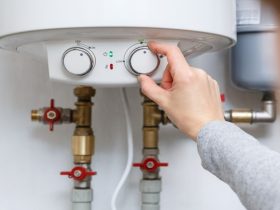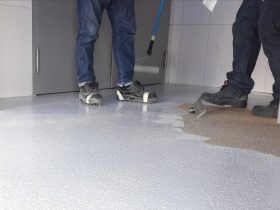We instinctively understand the importance of crisp, clean air for physical health. We connect it to fewer allergy attacks, reduced respiratory issues, and overall well-being. However, the link between air quality and mental health often remains unexplored. Microscopic pollutants, allergens, and even volatile organic compounds (VOCs) swirling in our indoor spaces can unknowingly contribute to anxiety, stress, and a general feeling of unease. These invisible irritants can trigger inflammation in the body, which research suggests plays a role in mental health disorders. Think of it as a constant, low-level assault on your system, disrupting hormonal balance and affecting cognitive function.
Purified Air, Peaceful Mind: Reducing Anxiety and Stress
Imagine stepping into a room where the air feels noticeably lighter, fresher. This isn’t just a pleasant sensation; it’s a tangible benefit achievable through air purification. By removing allergens, dust mites, mold spores, and other irritants, the best air purifiers reduce the physical triggers that contribute to anxiety and stress. When your body isn’t constantly fighting against environmental aggressors, your nervous system can relax, leading to a sense of calm and well-being. Moreover, cleaner air contributes to better breathing, which, in turn, directly impacts the parasympathetic nervous system, promoting relaxation and reducing the physical symptoms of anxiety such as rapid heartbeat and shallow breathing.
Sleep Soundly
Poor air quality can significantly disrupt sleep patterns. Allergens and irritants trigger nasal congestion, coughing, and sneezing, making it difficult to fall asleep and stay asleep throughout the night. These interrupted sleep cycles can lead to fatigue, irritability, and a weakened immune system. Air purifiers, particularly those with HEPA filters, effectively remove these sleep disruptors, creating a healthier and more conducive sleep environment. By promoting deeper, more restful sleep, air purifiers contribute to improved mood, increased energy levels, and enhanced cognitive function during waking hours.
Clarity of Thought: Boosting Cognitive Function with Clean Air
It’s easy to underestimate the impact of air quality on cognitive performance. Studies have shown that exposure to polluted air can impair concentration, memory, and decision-making abilities. The brain relies on a constant supply of oxygen to function optimally, and when air quality is compromised, oxygen delivery can be affected. Air purifiers can mitigate this issue by removing pollutants that hinder cognitive function, allowing for clearer thinking, improved focus, and greater mental clarity. By creating a clean and healthy indoor environment, air purifiers support optimal brain function, contributing to better performance at work, school, and in everyday life.
Choosing the Right Air Purifier: A Step Towards Mindful Living
Selecting the right air purifier is an investment in both your physical and mental well-being. Look for models with HEPA filters, which are highly effective at removing tiny particles like allergens and dust mites. Consider the size of your room when choosing an air purifier to ensure optimal performance. Models with activated carbon filters are beneficial for removing odors and VOCs. Finally, prioritize quiet operation, especially for bedrooms, to avoid any additional noise pollution.










